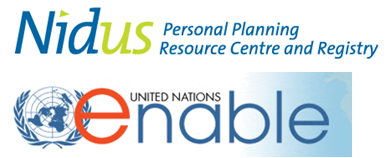Disability Disclosure in the Workplace
By Shelley Hourston
Disability Alliance BC

I’ve been writing about resilience for about 20 years now—most of that time I’ve worked at Disability Alliance BC (DABC). I feel privileged to have had the opportunity to talk to countless people with disabilities or chronic illnesses about their experiences.
Each story is unique but the common thread that intrigues me is the extraordinary creativity, commitment and determination that carries people forward despite their challenges. Our society focuses so exclusively on perceived deficits of disability that problem-solving, creative thinking and tenacity are overlooked. The consequences of disability deficit thinking is especially serious in the employment arena. Our experience at DABC led us to explore the flip-side of disability deficit thinking in the form of a guide to disability disclosure and accommodation in the workplace.
According to the Canadian Survey on Disability, 2012, there were 334,800 individuals aged 15-64 with disabilities in BC (10.8%).* Statistics Canada reports that in 2011, the employment rate of Canadians aged 25-64 with disabilities was 49% compared with 79% for those without a disability.** In BC, the $800/month ($9,600/year) earnings exemption for a single person receiving disability benefits provides an opportunity for people with disability/chronic illness to supplement their income with part-time employment.
Thanks to support from the Law Foundation of BC, DABC is developing a reader-friendly guide on the law relating to disclosing disability in employment settings. Disclosing Your Disability: A Guide for People with Disabilities In BC is intended for people with all types of disabilities (including visible and invisible disabilities and chronic illnesses). Some people are able to work full-time with appropriate accommodation while others may be able to work part-time. Others may be employed but face a need for disclosure due to acquired disability or chronic illness. The guide will address legal rights and responsibilities of disclosure and provide practical activities and worksheets to guide readers through self-assessment and to elicit and document individual strengths. A reference list of sample accommodations and resources will equip potential employees and employers with ideas and a place to begin planning.
We’d like help from you too. The guide will include six experiences of people with disabilities/chronic illness and six stories from employers to illustrate disclosure and accommodation in the workplace. If you know of someone who would be willing to share their experience, please ask them to contact me.
Shelley Hourston is a program director at DABC and can be reached at 604-875-0188 (toll-free 1-877-232-7400) or Shelley@disabilityalliancebc.org.
*Statistics Canada. Canadian Survey on Disability, 2012. Table 1.11: Prevalence of Disability for Adults by Sex and Age Group, British Columbia, 2012.
**Statistics Canada. Persons with Disabilities and Employment (Insights on Canadian Society) by Martin Turcotte. 2014.




